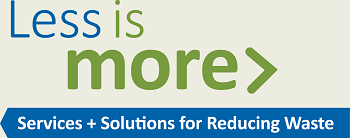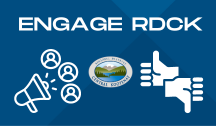Waste & Resource Recovery

The RDCK is divided into three sub-regions (West, Central & East). Each sub-region reflects the disposal needs of local communities. Each sub-region has a combintation of Resource Recovery Facilities (Landfills, Transfer Stations & Recycling Depots) to provide various resource recovery services.
Resource Recovery services include waste handling facilities, composting facilties, community recycling depots, materials recovery and environmental education.
Information such as the site location, tipping fees, days/hours of operation, and disposal & recycling information is outlined in the Sub-Regional User Guides.
| EAST | Resource Recovery User Guide East Sub-Region |
| CENTRAL | Resource Recovery User Guide Central Sub-Region |
| WEST | Resource Recovery User Guide West Sub-Region |
RDCK Resource Recovery Facilities include:
| Landfills | |
| Transfer Stations | |
| Recycling Depots |
|
| Organic Waste Disposal Facilities (all Open) |
Resource Recovery
The RDCK is responsible for the landfilling and end-of life management of waste generated in the region. The guiding principle of waste management in the RDCK is Resource Recovery. By working to recover the value imbedded in any waste product, either through re-use or recycling, the RDCK and its partners aim to increase the efficiency, cost-effectiveness, and environmental sustainability of waste disposal in our region.
Less is More: Services + Solutions for Reducing Waste
We’ve created a new Resource Recovery Plan to guide recycling, composting and landfilling in the RDCK over the course of the next decade. The Plan is currently awaiting approval from the Ministry of Environment and Climate Change Strategy, but is already informing how the RDCK is managing waste for the long-term.
Organic Waste Diversion
In spring 2022, the RDCK opened a composting facility at the Creston Landfill and began accepting residential and commercial organic waste from the Town of Creston and East sub-region. A second facility has been constructed at the Central Landfill (near Salmo), which receives organic waste from the West and Central sub-regions. Ootischenia and Grohman Narrows facilities are being upgraded to accept all organic waste from the public and commercial haulers. View our Organics Diversion page for more information on organic waste diversion in the RDCK, including construction timelines, tipping fees, and accepted materials.
New Transactional Software coming to Landfills and Transfer Stations
In July 2022 the RDCK purchased new transactional software for the landfills and transfer stations. Read the Information Sheet for more information.
New Per Bag/Container Fee Structure
In keeping with rising operating costs and regulatory requirements, there is a NEW FEE STRUCTURE for disposing of Containers (maximum 121 L can/ bin OR maximum 81 cm by 102 cm [32” by 40”] bag).
Resource Recovery Facilities Regulatory Bylaw
The Resource Recovery Facilities Regulatory Bylaw clarifies disposal policies. This Bylaw reaffirms the RDCK's commitment to implementing best practices in resource recovery and has the following general objectives:
- To define material types and waste categories
- To outline site regulations governing public use of Resource Recovery Facilities
- To clearly outline restrictions on Prohibited and Controlled waste materials
- To provide for penalties from contravention of the Bylaw
- To set fees for waste disposal and recyclable materials
The content on this page was last updated July 11 2024 at 7:36 AM

